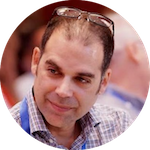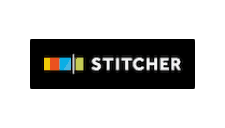Listen to Episode 25
Bonus: Watch the video of this episode on YouTube!
Our Guest Panel of Experts
Show Notes
We hear about the vision for a coaching role from a school leader’s perspective to the opportunities for collaboration and cooperation from our librarians and counselors as well as the value and purpose of coaching. From a teacher’s perspective, it’s easy to see from this episode just how varied and multi-faceted a coach’s role really is.
What Do Coaches Do?
Rebekah: I think coaches are, it can really depend, but I think coaches are often there for, to be an outside eye, to be a critical friend, to be someone who pushes people to be someone who can be a cheerleader. Um, I think that that role of coach can change and one of the challenges of that is trying to figure out what does each person need. Do they need a cheerleader? Do they need a coach? Do they need someone to push them? It can change day to day. It can change month to month, it can change as the years progress and changed over time. But the role is really varied and it can depend on what the teachers need and the teachers will know what the kids need.
Tico: The first part is going to sound trite, but it’s, it’s important to say it: The role of the coaches support the mission and the vision of the school. What a coach can do is to help align teachers and the teaching to be consistent with the vision of the school division that the community has put together, all the stakeholders, the board and leadership and the teachers and the parents have agreed on the kind of school that they want. And coaches should be a very powerful tool to influence that alignment. Now under that, there’s a lot of other things that coaches do. Coaches have to do the technical part and kind of the cultural part of it. Because coaches are freed from the evaluative piece, they can be a trusted friend and a critical friend. So they’re safety for a teacher to be vulnerable around and to ask for support. Coaches can give that support. Coaches can be proactive. There’s that reactive-proactive piece that the coaches have to get used to. And then the coaches have to have a certain, political savvy shall we say, in order to have the teacher align with the needs of the school. So when you’re being innovative, that coach has to help with saying things like “this is the right direction, but you need to go two steps forward more aggressively towards that goal” or “woah, woah, slow it down I think you’re a little bit ahead of the game”. The pacing of the move towards the innovative piece is also an important part that the coach role. The role has not just the how do you do it, but to what pacing do you do it. Because when a school’s innovative, things start moving at different slightly. It’s like getting a genie out of the bottle. Certainly innovative innovations out there. And for all these teachers it means something different like their dream school and their dream classroom. Those look different. So you need leadership and you need the mission and vision and all that to help align all this energy and the coaches have to align that energy and the pace that they go towards so that we’re kind of moving as a unit. Some are pilots and some are really role models of what the possibilities are. Others might be a bit slower, but you have to still move as a unit in the same direction. And coaches help with that as well. And then coaches are also repositories of research and development. And what I mean is what is best practice. Coaches need to spend a certain percent of their time seeing what best practices are out there, what are, what are things that are going on in other innovative schools that are like-minded. And that really helps, not just on the how, but it really helps in the emotional piece because when you know that other schools are doing this, struggling here but have been able to overcome it, then it gives you confidence. We’re not the only ones out there doing this. And we’re finding it hard. It must be impossible. No, that’s not right. Look at this school that found some of the same obstacles in their way and these are ways that they overcame it, or these are some pivots that they made in order to make the most of, the idea, even though some of those obstacles were very real.
Niki: In my experience coaches help me really think about how I can achieve best practice, how I can find an answer within myself to solve something. At our school all of us are coaches so all of us are trained to be coaches and so it doesn’t feel like it’s something special or something that you have to particularly seek out. You can have coaching conversations with many people, so maybe because of that there is a real culture of coaching and a real culture of being open to that type of conversation and being able to kind of slip into that easily without it feeling like a special, a special opportunity or a special thing. So it’s really, it’s really useful. It’s very empowering and I think that maybe particularly so, it feels like that for me working here because so many people have had those skills.
Adam: I do actually feel like when you think about what a coach does and actually what a counselor does, certainly, the roles are distinct, but there’s a certain element of overlap I think in approach. So if you think about like our counselors really working with people too, like identify, okay, what’s, what’s the area of concern or the area of need for growth, say um, and then what does this person have as their current strengths? Where are they experiencing success? Where are their abilities and what other assets can they leverage to move forward? Like a coach is just doing the same thing. It’s just about a different topic. So, my topics I work with people on are social, emotional in nature, I think there’s that aspect of the coaches work, but I also feel like since we’re talking about technology coaching is often around that tech side. What is this person’s current areas of strength? What are their needs? And then how does the coach help leverage those so that person can experience the success that suits them?
Merilyn: I think a coach’s main job is to help support teachers so that they can become more effective in their role because the main goal of course is just to improve student learning as much as possible so that they can do that in many different ways. By just being a sounding board for teachers; for instance, giving different perspectives; just giving encouragement when it’s needed; feedback; generating ideas; refining ideas; all those types of things, but basically supporting teachers in their struggle to get students to learn more effectively.
Jabiz: I think they have a variety of different roles depending on what kind of coach they are and who they’re coaching. Our former head of school James Dalziel kind of put it best, the metaphor was this idea of teachers as craftspeople and how you’re constantly kind of working on your craft. And I believe a coach is just someone that is a sounding board and a mirror, and I mean it sounds redundant, but as someone who coaches you through that improvement of your craft so you don’t feel like you’re working in isolation. And you have someone who is there alongside you maybe seeing things that you don’t see in guiding you to hone your craft as an educator, as a teacher.
Danny: I think almost everyone who doesn’t have, you know, a designated teaching load, is there to support teaching and learning in a multitude of ways. We are there to support the, in the case of, of coaches and librarians (because I see them very similarly as I mentioned) we are supporting a community of learners. We are supporting the parents. We are supporting the students. We are supporting the classroom teachers, we were supporting administration. We are helping in every way we can to make teaching and learning run well.
Katy: I really like to think of coaches as people that gave me that extra oomph. Both in my role as a librarian. I am the person who gets to go in and support people with something maybe that they’ve always wanted to try and help build it up and make it better. But also as a librarian, I do a lot of work in content areas that I sometimes don’t have a huge amount of skill or background knowledge too. And I often need a lot of support from people who are coaching, say in an EAL position or an IT position and they come in and they take my strong content that I have and they helped me raise it up to that next level to really make the teaching and learning better for the kids that I’m working with.
The Coach Certificate & Mentorship Program
An academic year of professional learning designed by coaches, for coaches!Do you want to feel more confident and inspired in your role as a coach?
JOIN OUR MAILING LIST
Sign up for our #coachbetter mailing list to receive a newsletter every other week all about coaching in a school context. Each FREE newsletter features one of our relevant coaching videos, a practical coaching tip you can use right away, plus a great resource created or selected by the Eduro Team to help you #coachbetter!
CLICK HERE
#COACHBETTER ON FACEBOOK
Connect with other coaches, just like you, in our free #coachbetter Facebook group:
CLICK HERE
EVEN MORE COACHING RESOURCES
See all of our Eduro Learning coaching resources!
CLICK HERE
If there’s something you’re interested in, and we don’t have it, let us know!
PRIVATE MENTORING
Or if you want to see what the private mentorship experience is like, check out our Private Coaching sessions – and get your first coaching session for free – here:
CLICK HERE
ABOUT #COACHBETTER
We’re passionate about the impact instructional coaching can have on school culture, student learning and teacher professional growth. This podcast allows us to share inspiring ideas about coaching through conversations with innovative educators from around the world. Let us help you #coachbetter! We would love to hear your thoughts, ideas and questions so please drop us a comment below!
Your Show Host
Kim Cofino

We love sharing great content!
Get authentic, relevant, practical content delivered right to your inbox!
Connect with Us












